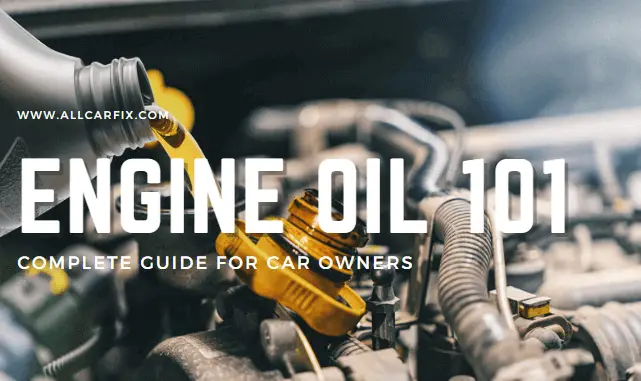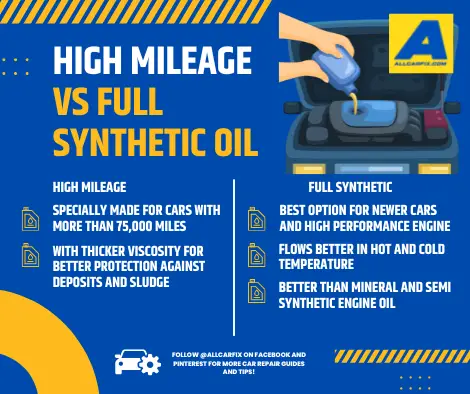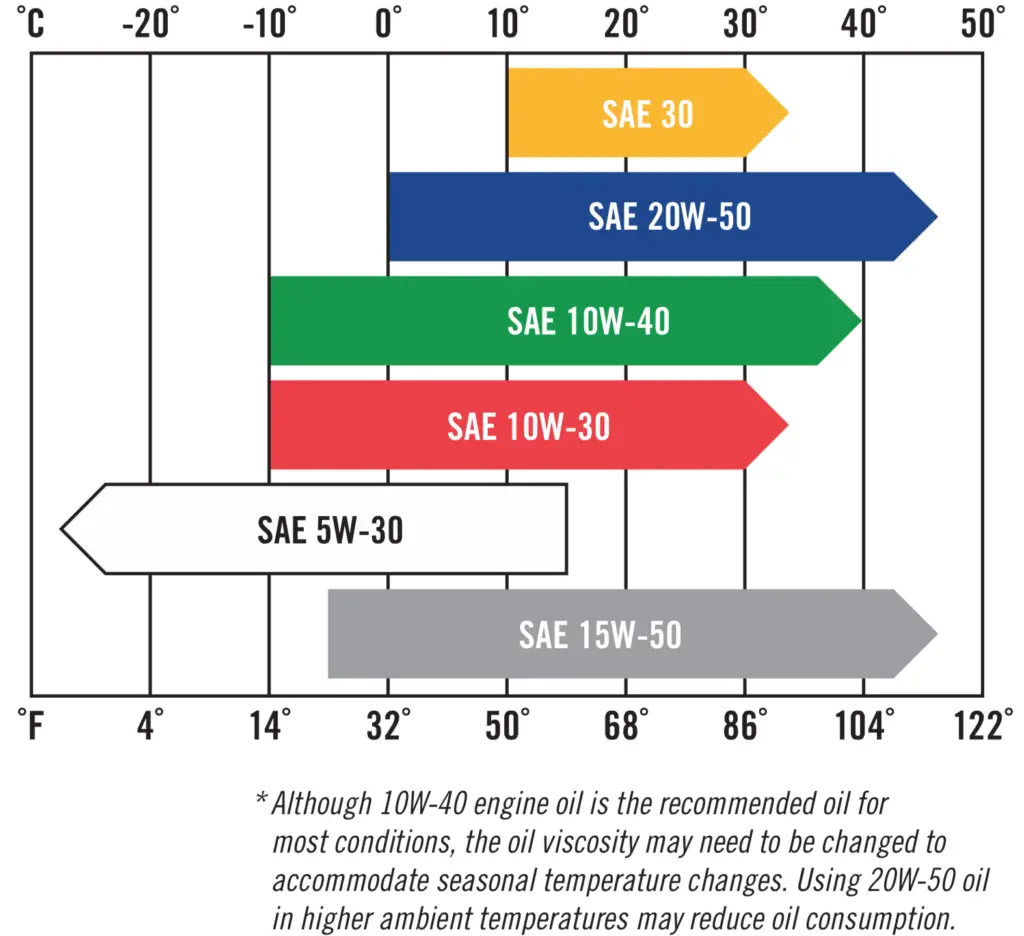Before we start, we want to let you know that this is an article that is supposed to be as comprehensive as possible. We have written it with a lot of research and incorporated our experiences to give you the best insights and knowledge about engine oil.

While it is one of the most important fluids in a vehicle, there are still many misconceptions out there. So read on to learn more about engine oil and the importance of regular oil changes, how often to change it, the types of oils available in the market, and all the other facts you should know.
Key Points
- Engine oil is a lubricant to reduce friction and wear and protects your engine from overheating.
- Engine oil additives can provide various benefits, such as cleaning the engine, maintaining the oil’s viscosity, preventing foam formation, reducing rust and acids, and preventing wear on engine parts.
- It is important to regularly change your engine oil to keep your car running smoothly and efficiently and to prevent costly repairs.
- There are three main types of engine oil: conventional, synthetic, and semi-synthetic. Each type has its benefits and is suitable for vehicles and driving conditions.
Importance of Engine Oil
In simple terms, engine oil is a lubricant used to reduce friction and wear and protect your engine from overheating.
It is made up of a blend of base oils with additives that make it more effective at reducing wear on moving parts while keeping them cool so they can last longer. If you run a car without oil, your engine may only run for around 15 minutes before serious damage occurs.
Additives in Engine Oil
There are many different engine oil additives available on the market, but they all serve essentially the same purpose: to help keep your car’s engine running smoothly and efficiently.
Engine oil additives can provide various benefits, such as improved block leaks and seals, reduced wear and tear, corrosion prevention, improved oil cleanliness, and increased viscosity.
Most additives are made up of a combination of sulfur, phosphorus, zinc, and silicone materials. These materials have unique properties that make them ideal for use in motor oil.
Engine oil typically comprises 70-90% base oils and 10-30% additives. Zinc and phosphorus in oil are commonly used as anti-wear additives in engine oil, but modern oils contain only small amounts of these ingredients due to regulations on emissions.
Types of Engine Oil
There are three main types of engine oil: conventional, synthetic, and semi-synthetic. The main difference between these three types is how they are made.

1. Conventional oil
Conventional motor oil is made from crude oil. It’s the cheapest and the most common type of motor oil on the market today. Sometimes referred to as mineral oil, it’s what most people think of when they think about engine oil.
Compared to refined synthetic oils, conventional oils are more susceptible to breaking down, leading to engine sludge and other problems.
Read more: Conventional vs. Synthetic Oil: What’s the Difference? 6 Interesting Facts [Explained]
2. Synthetic Oil
Full synthetic oil is a motor oil designed to provide enhanced protection and performance for today’s advanced engine technology.
Full synthetic oil is made up of artificially created chemical compounds, usually derived from crude oil or a byproduct of the same. On average, synthetic oils outperformed conventional oils in the tests by 47 percent.
| Properties | Conventional Engine Oil | Synthetic Engine Oil |
|---|---|---|
| Composition | Refined crude/mineral oil and additives | Base oil, synthetic additives, and modifiers |
| Production | Several refining processes to remove impurities | Created chemically in the laboratory |
| Cost | Cheaper, between $35 and $75, | More expensive, anywhere from $65 to $125 |
| Viscosity | Higher viscosity | Lower viscosity |
| Performance | Prone to sludge build-up but is better for older cars | Better performance than conventional engine oil |
3. Synthetic Blend or Semi-synthetic
A blend of conventional and synthetic oils is called “blended” or “semi” synthetic oil because it contains both base stocks in different percentages.
Mixed synthetic oils typically have better wear resistance than conventional oils and are often used in cars that require more frequent oil changes.
They’re also a good choice for drivers who prefer to spend less money on the pricier full synthetic oils but still want better protection than conventional lubricants can offer.
It is possible to mix semi-synthetic with full synthetic oil. Synthetic and conventional motor oils are generally made from the same ingredients (base oil and additives) and are, therefore, compatible when mixed. However, mixing different oil types can destabilize the oil’s chemical properties and detergents, so it is not recommended. It is best to stick with the oil type and oil change intervals recommended by your car’s manufacturer.
4. High mileage oil
With proper maintenance, some cars can last up to 200,000 miles. But with the number of vehicles on the road reaching a record high, so are the sales of high-mileage oils.

High mileage oil is designed specifically for older cars with high mileage (75,000 miles or more). It has an improved formula that helps prevent sludge from forming in the engine’s cylinders, which can lead to poor performance and premature engine failure.
High mileage oil also helps prevent wear on engine components like cylinder walls and pistons by keeping them clean and free of deposits. High-mileage oil is thicker than full synthetic because it contains durable viscosity modifiers to keep your engine running cleaner and longer by preventing deposits from building up.
Mixing Different Engine Oils
In general, we do not recommend different types, brands, and viscosity of engine oils. This may void the warranty or cause damage to your engine.
There may be some instances where it is necessary, such as when you have no other choice due to the unavailability of one type or another.
However, if this is the case, make sure your engine has a full-service history and has not been neglected for long periods.
1. Can you mix different engine oil types?
Mixing different engine oil types, such as semi-synthetic and fully synthetic, can be bad for your car’s engine.
Each type of oil has its own specific properties and characteristics that are designed to work best in certain types of engines. When you mix these two different types of oils, the oil may not perform optimally in all conditions and may cause damage to the engine over time.
It’s always best to stick with the type of oil your car or vehicle manufacturer recommended.
2. Can you mix different oil viscosity?
Yes, mixing different viscosities of motor oil is possible, but again it’s best only to do so if necessary.
However, be aware that using the wrong viscosity grade can cause problems with your engine because it needs a certain amount of flow to lubricate parts properly. For this reason, we always recommend using the correct viscosity grade for your vehicle.
We recommend reading our previous articles regarding mixing different oil grades or viscosity as it is important to understand the potential risks and consequences:
- Can You Mix 5W20 and 10W30 Motor Oil?
- Can I Mix 5w30 And 10w40 Oil?
- Can you mix 5w20 and 5w30 engine oil?
- Can I Use 10w30 Instead of 5w30?
- Can You Mix 5w30 And 5w40 Oil?
3. Can you mix different engine oil brands?
Yes, you can mix different brands of motor oil.
However, it’s best to do so only if necessary because each brand uses a different additive package and has specific viscosity grades.
Your engine may not benefit from the different additives and may not run as well as it would with a single oil brand. In addition, mixing different brands of oil can result in an unstable mixture that doesn’t provide adequate lubrication.
No check out this very detailed experiment from Project Farm mixing ten different engine oil and finding out how it will impact the engine:
Choosing the Right Engine Oil
So there’s a lot of information to consider when choosing the right engine oil for your vehicle. But don’t worry; there are some simple steps you can take to make sure you’re getting the best product for your car.
1. Viscosity
Viscosity is a measure of an engine oil’s thickness; it’s like the consistency of oil. In simple words, if oil is too thick, it will be harder to flow around the engine and lubricate all the moving parts.
If the oil is too thin, it will not provide enough protection to the engine parts, leading to wear and tear.
That’s why choosing the right viscosity oil for your engine is important, which can be found in the car’s owner’s manual or by asking the dealership.
2. Engine Oil Type
As discussed above, different engine oils have different formulas, such as mineral or conventional oils, synthetic oils, and synthetic blends or semi-synthetic oils.
Mineral oils are typically cheaper than synthetic oils but are not as effective in extreme temperatures or cold start-ups.
Synthetic blends combine both mineral and synthetic types for better protection in all conditions, but they cost more than mineral-based oils alone.
3. OEM Specifications
The owner’s manual of your vehicle will contain clear guidance on viscosity, certifications, and specifications that the manufacturer recommends for your car’s engine.
You can check your car’s engine oil dipstick if you can’t find this information online or in another source like a repair manual or service guidebook. There should be a label on the stick that says what type of oil to use: SAE 5W-20, for example.
4. Climate
The type of oil you use should also be selected based on the climate where you live.
In places like Miami, FL, which has very hot and humid year-round weather, it’s best to use a synthetic blend that will repel water and resist breakdown from heat.
If you live in an area with cold winters or even occasional snowfalls, then you’ll want to find an oil with a low pour point—a measure of how cold it needs to get before your engine starts knocking.

5. Vehicle’s Mileage
Vehicles with more than 100,000 miles (160,934 kilometers) can benefit from high-mileage oil, designed to keep engines ticking over with less wear and tear.
High mileage oil also helps prevent sludge buildup, which can lead to engine failure.
Changing Your Engine Oil
The recommended frequency for changing engine oil varies depending on the type of vehicle and its age. Generally, it is recommended to get an oil change every 5,000 to 8,000 miles for most cars, although some newer vehicles may be able to go up to 10,000 miles between oil changes.
Check the color of the oil using the dipstick at least once a month or before any long trip.
Caution: Avoid changing the oil while the engine is still hot. Wait for at least 20-30 mins. However, if you are only topping up oi, you can add oil while the engine is still hot or warm.
Read more: Clean vs. Dirty Engine Oil Comparison
Common Problems with Engine Oil
1. Oil leaks
If you see a small puddle of oil under your car or in the spark plug well, it could be a sign of an oil leak.
When you look under the vehicle, check for signs of a leak near the oil pan (the bottom part of the engine) as well as around the valve cover (top part). If there is a leak, it may need to be fixed immediately; otherwise, you risk damaging other components in your engine.
2. Oil consumption
If you notice that your oil level is dropping faster than usual, it could indicate that something is wrong with your engine. This can lead to internal engine damage if left untreated, so make sure to have it checked out immediately by a certified mechanic if this happens.
3. Oil pressure issues
If your vehicle has low oil pressure or no pressure at all, this can cause severe damage to internal parts such as pistons and valves in the engine. You should consult a mechanic immediately if you notice this problem developing with your car or truck.
Read more: Driving With Bad Oil Pressure Sensor – Why is it Unsafe?
Best Engine Oil Brands
There are many different engine oil brands, and they all have unique benefits.
Some manufacturers produce synthetic oils, while others offer conventional blends, so it’s important to know what works best for your vehicle before making a purchase.
The following list contains some of the most famous names in the business today:
- Mobil: Mobil was founded in 1911 as the Socony-Vacuum Oil Company, and it has a long history of producing high-quality lubricants for a wide range of industries. The company’s Mobil 1 synthetic oil was introduced in 1974 and has become a well-known and highly regarded product.
- Royal Purple: Royal Purple was founded in 1986 and is a relatively new company compared to some of the other manufacturers on this list. The company was founded to produce high-performance synthetic oils that would outperform traditional ones.
- Amsoil: Amsoil was founded in 1972 by a man named Al Amatuzio, a synthetic oil industry pioneer. The company has a reputation for producing high-quality synthetic oils for a variety of applications.
- Castrol: Castrol has a long history dating back to 1899 when it was founded as the Castrol Oil Company. The company has a global presence and produces a wide range of lubricants for a variety of industries.
- Shell: Shell is a global energy company that was founded in 1907 as the Royal Dutch Shell Group. The company has a long history of producing high-quality lubricants for a wide range of applications.
Conclusion
In conclusion, engine oil is a crucial component of your vehicle’s engine and is essential for its proper functioning.
Regular oil changes are important to keep your car running smoothly and efficiently and to prevent costly repairs down the road.
There are three main types of engine oil available on the market: conventional, synthetic, and semi-synthetic. Each type has its own benefits and is suitable for vehicles and driving conditions.
It is crucial to consider the specific needs of your vehicle and driving habits when choosing the right type of engine oil. Additionally, engine oil additives can provide various benefits, such as cleaning the engine, maintaining the oil’s viscosity, preventing foam formation, reducing rust and acids, and preventing wear on engine parts.
By following proper engine oil maintenance and using high-quality oil and additives, you can ensure your vehicle’s longevity and proper functioning.
AllCarFix Recommends:
- Follow your vehicle’s maintenance schedule and get regular oil changes to ensure your car’s longevity and proper functioning.
- Consider your vehicle’s specific needs and driving habits when choosing the right engine oil.
- Use high-quality engine oil and additives to provide your car the best protection and performance.
